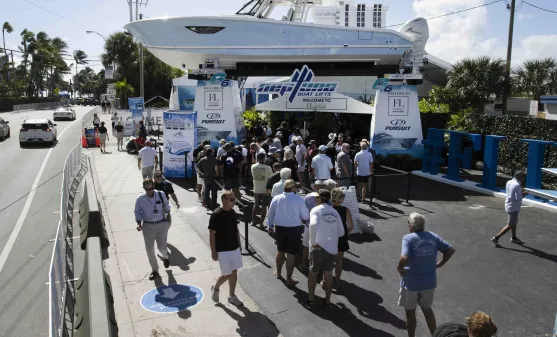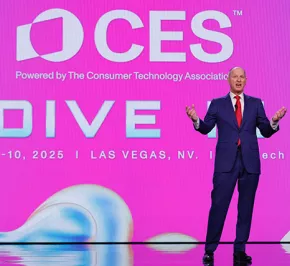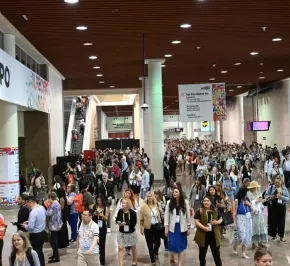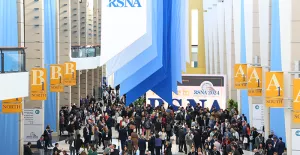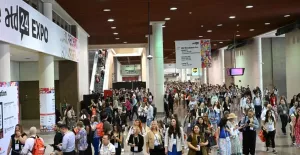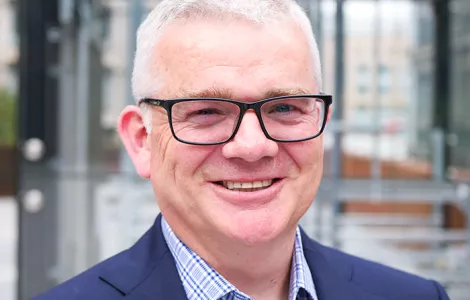As we look forward to 2025, it’s clear the events industry is evolving beyond simply “showing up.” Today’s attendees crave deeper engagement, meaningful interactions, and experiences that surpass what they can get from a screen.
To meet these expectations, show organizers need to address what all attendees want, creating spaces where genuine connections happen, insights are shared, and the experience is truly worth the trip.
Events that resonate most will thoughtfully align buyers with sellers, offering insightful, personalized approaches. Here are six predictions for 2025:
Content that Inspires and Connects
The trade show industry will place greater emphasis on content that deeply connects with attendees. Motivational speakers will still set the tone, but organizers are increasingly focused on actionable insights. Interactive sessions and sponsor-led workshops will bring ideas to life, allowing attendees to implement strategies immediately. This approach also benefits sponsors by showcasing their solutions in action, rather than relying solely on traditional booths.
Real-life Interactions
The irreplaceable nature of face-to-face interactions will drive attendance in 2025. With so much content online, event professionals are focused on offering what virtual events can’t –hands-on learning and spontaneous, high-value networking. Exhibitors will emphasize tactile engagement, opting for live demonstrations or guided sessions that foster genuine connections and deeper understanding. These real-world experiences will continue to propel business forward.
The Pavilion Trend
Pavilions are becoming essential features of trade shows, offering attendees themed spaces to explore related solutions efficiently. For example, an innovation pavilion might highlight cutting-edge solutions across industries, fostering cross-pollination of ideas. Pavilion designs will become increasingly targeted, featuring tailored layouts and interactive elements for specific industries, ensuring a cohesive, engaging experience.
Accessible Events
Accessibility will become a foundational principle, not an afterthought. Expect more ADA-compliant spaces, sensory-friendly areas, and assistive technologies like real-time captioning. Planners are investing in inclusivity to reflect broader cultural shifts and corporate social responsibility goals. These efforts ensure all attendees feel welcomed, fostering genuine connections, and building loyalty among diverse audiences.
Staying Power of Sustainability
From eco-friendly booth materials to reducing carbon footprints, events will focus on minimizing waste and embracing green practices. Digital materials will continue to replace paper handouts, and smarter logistics will streamline operations. Events adopting sustainable practices will stand out for their alignment with modern values.
Creative Booth Design
Turnkey booth rentals are transforming the show floor. These adaptable, visually compelling booths deliver custom-style experiences at a fraction of the cost, offering brands flexibility and efficiency. The focus will be on creating immersive, cohesive spaces that fit a brand’s identity while supporting streamlined setups.
Final Thoughts
As we approach 2025, the events industry isn’t just pivoting in format—it’s evolving in purpose. Attendees are looking for valuable, personalized experiences that educate, inspire, and connect them. Let’s deliver what they want in 2025.
Don’t miss any event-related news: Sign up for our weekly e-newsletter HERE, listen to our latest podcast HERE and engage with us on LinkedIn!
Homepage
Featured News
Jan 10, 2025
Jan 07, 2025
Jan 10, 2025
Jan 08, 2025
To send in your exhibit or show photos, please contact: news@tsnn.com
Partner Voices

MGM Resorts is committed to fostering an inclusive and diverse culture, not just among employees and guests but also within its supply chain. The company prioritizes procuring goods and services from businesses owned by minorities, women, veterans, people with disabilities, LGBTQ individuals and those facing economic disadvantages. This commitment is integral to MGM Resorts' global procurement strategy.
Through its voluntary supplier diversity program, MGM Resorts actively identifies and connects certified diverse-owned suppliers to opportunities within its supply chain. The company is on track to spend at least 15% of its biddable procurement with diverse-owned businesses by 2025, demonstrating that supplier diversity is not only a social responsibility but also a strategic business imperative.
Supplier diversity isn’t just the right thing to do – it’s good for business. A diverse supply chain allows access to a broader range of perspectives and experience, helping to drive innovation, entrepreneurship and resilience, while strengthening communities. At MGM Resorts, engaging diverse suppliers ensures best-in-class experiences for guests and clients. Supplier diversity ensures a more resilient supply chain while supporting economic development in the communities in which it operates.
The impact of MGM Resorts' supplier diversity initiatives is significant. In 2023, these efforts supported over 3,500 jobs across more than 30 states, contributed over $214 million in income for diverse-owned businesses and generated more than $62 million in tax revenue. The story extends beyond the numbers – it reflects the tangible benefits brought to small and diverse-owned businesses, fostering economic empowerment in their communities.
MGM Resorts also supports the development and business skills of diverse-owned businesses through investment, mentorship and education. Through the MGM Resorts Supplier Diversity Mentorship Program, the company identifies, mentors and develops diverse-owned businesses to fill its future pipeline, while providing businesses with tools and resources to empower and uplift. Since 2017, the program has successfully graduated 105 diverse-owned businesses and is on track to achieve its goal of 150 graduates by 2025.
MGM Resorts’ commitment to supplier diversity not only enhances its business operations but also plays a crucial role in uplifting communities and fostering economic development. This approach reinforces the idea that diversity is a powerful driver of innovation and resilience, benefiting both the company and the wider community.

